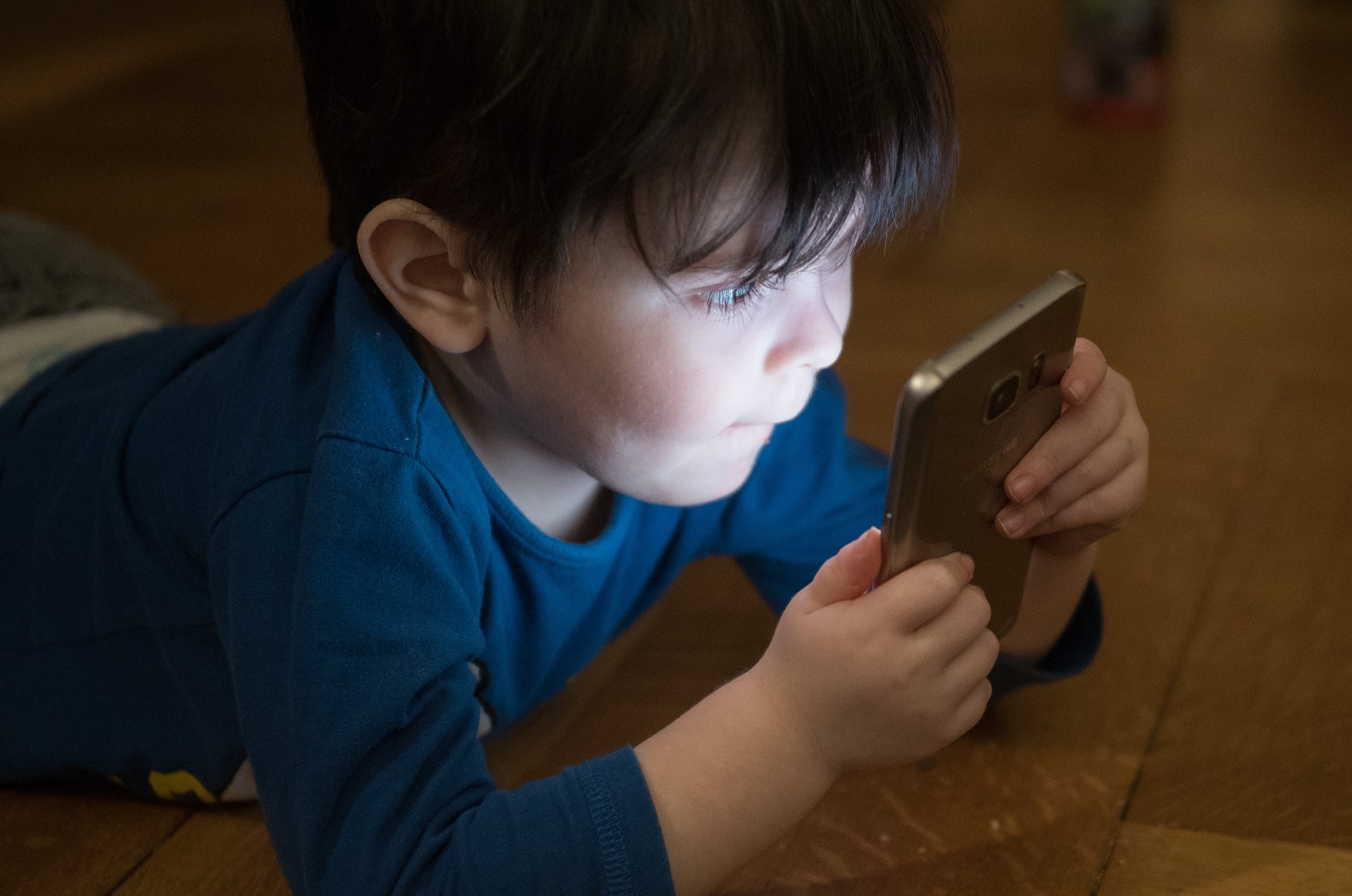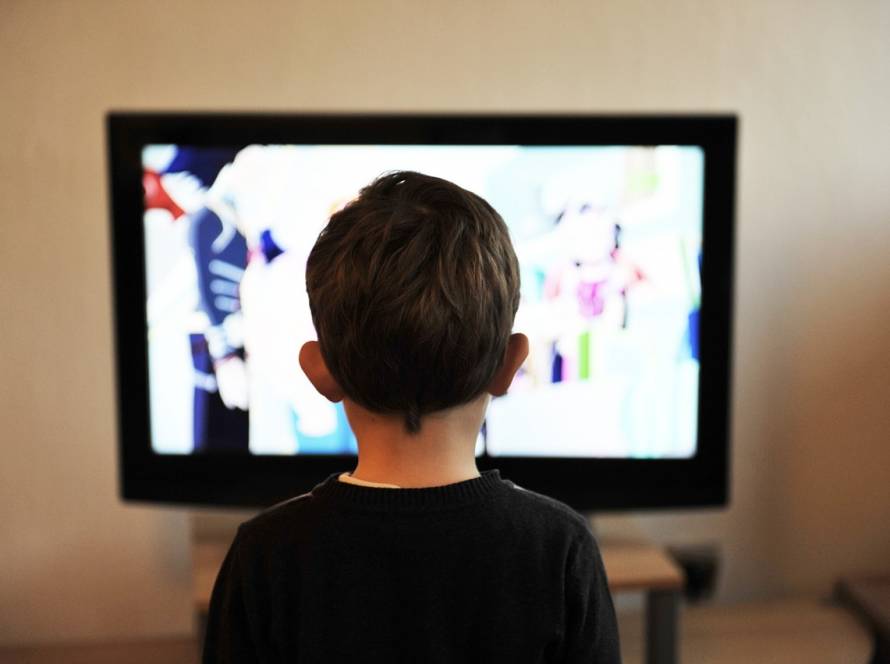When I was young, my dad once shared with me that often times growing up, I would hear two sides to a story. Like a pendulum, opinions on things would swing from one side to another, but the truth usually lie somewhere in the middle. Decades later, a mentor to my husband shared the same thing (only in Latin, which sounds cooler): “Veritas en medio est” which means “The truth is in the middle.”
The latest wave of “sides” that I’ve seen has been in regard to the use of electronic devices by children, youth, young adults… everyone. There are facts and statistics that seem to “support” each side of the pendulum on this one.
 I know parents who are adamantly opposed to any form of device ever being used by their child, citing everything from biological research that devices literally harm the brain to social concerns regarding the availability of kids to access mature content at the push of a button or be vulnerable to bullying without a safe place to escape (all legitimate concerns).
I know parents who are adamantly opposed to any form of device ever being used by their child, citing everything from biological research that devices literally harm the brain to social concerns regarding the availability of kids to access mature content at the push of a button or be vulnerable to bullying without a safe place to escape (all legitimate concerns).
I know other parents who lean towards embracing devices, citing other research that shows that kids who use devices at a young age are better at problem solving, are more socially conscious, and learn basic academic skills earlier.
Oh my goodness, how in the world are we supposed to navigate this? Well, I’m going to follow the advice of my mentors here and encourage us to consider that the truth is probably somewhere in the middle.
Devices are not the enemy.
They are devices. We control them. We can even turn them off.
As parents, we control the access to them within our home. We can turn off the wifi. We can take away devices. We can monitor what our kids have access to.
We can also use them constructively. We can create space that invites our kids to learn with us how to responsibly use devices. We can model healthy behavior. We can create a culture in our home that helps our kids responsibly use devices.
Ultimately, devices aren’t the issue. We are.
Whether we are the parent that says, “No devices, end of story” or the parent that says, “All the devices, let’d dive in,” the reality is simply this – we are in charge of the narrative. And since, I suspect, most of us tend to be somewhere in the middle, aware of both the dangers and the benefits and doing our best to walk the wire and do the right thing, ultimately the issue is … us.
Jon Acuff has a great series on technology and kids and one of his primary takeaways is this: “You can’t stop a changing culture, but you can control the culture in your home.” In other words, as parents, we can’t stop the fact that devices are becoming more and more integrated in our society. We can’t.
Even if we choose to remove all devices from our home, the reality is if we walk outside of our home at any time and choose to interact at all with the world, we are going to find a reliance on devices is part of that culture. But what we can do is create a culture inside our own home that puts devices in their proper place.
We can respect the device as what it is – a tool, a social platform, a learning resource, an object with an off/on switch – and we can establish ways of interacting with said device that help our kids and youth to develop healthy habits that will help them when they walk out of our home.
But it’s even bigger than that.
We can establish a culture in our home of kindness, a culture that says we treat others as Christ would and that extends into our social media networks.
We can establish a culture of self control and moderation, a culture that says we don’t need to over indulge or become obsessed with anything and that can extend to our use of devices.
We can establish a culture that says we honor Christ first, a culture that is first of all focused on Christ-centered relationships and community and that can encompass how and where we use devices.
We can create a culture that becomes so much a part of our home that when anything new is introduced into it, that new thing is screened by the culture and put in its proper place, and that includes devices.
Doing that will take work, a lot of work. It’s not an offhanded thing. Creating a culture in our homes requires actual and intentional thought and time. It requires stated expectations and shared values. And those don’t happen overnight.
Creating that culture is as much a part of the discipleship process as reading the Bible, praying with our children, and serving our community.
Discipleship at home isn’t about adding more to our already busy lives; it’s about welcoming Christ into every aspect of our lives, including technology. It’s about finding ways to intentionally invite Jesus into our devices, not in some “super spiritual” Jesus juke kind of a way, but in a recognition that like every other part of our lives, this one needs His grace as well.
There are articles upon articles out there that will give ideas galore about how to actively engage your child in healthy ways with devices. Articles about how to make it more safe. Ideas on intentional conversations you should have with your children. I recommend reading them. But I also recommend this; don’t let fear or apathy control the decisions that we make in regard to devices.
We have the exciting opportunity to help our children experience life within the safe space of our home with the guiding principles of our culture through the grace of Christ.
With that before us, let’s not let devices steal the spotlight.
Instead, let’s prayerfully consider how these objects can be best experienced in our children’s lives in ways that prepare them for the future and engage them with discipleship within our homes.
(This article is the third in a series on social media, technology and discipleship. To read the first and second, click on the links)
For more information about
- Kids in Worship
- Determining which Type of Family Ministry model works best for your church
- Discipleship in Intergenerational community
- Encouraging the continued conversation through Practical Discipleship at Home
- Seminars, Workshops, Coaching
Check out to ReFocus Ministry or “like” our Facebook page. Join our conversation at theReFocus Family and Intergen Ministry group on Facebook.
About this Blog

Refocus Ministry was started by Christina Embree, wife to Pastor Luke, mom to three wonderful kids, and church planter at Plowshares BIC. With years of experience in family ministry and children’s ministry, she is passionate about seeing churches partnering with families to encourage faith formation at home and equipping parents to disciple their kids in the faith. She recently graduated with a Masters of Arts in Ministry focusing on Family, Youth and Children’s Ministry at Wesley Seminary, she also blogs at www.refocusministry.org and is a contributing blogger at D6 Family, ChurchLeaders.com, and Seedbed


2 Comments